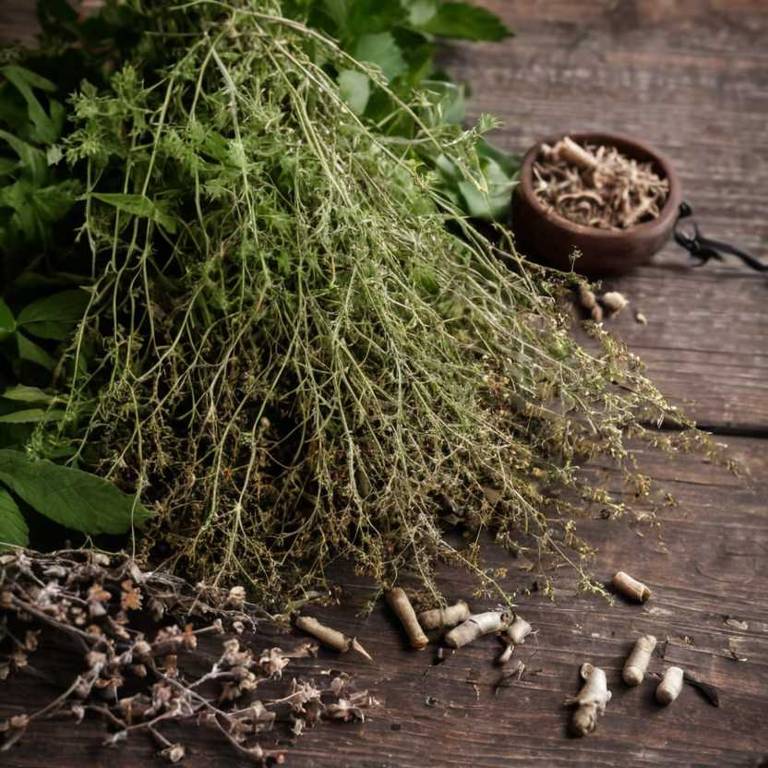By Leen Randell
Updated: Jul 05, 2024
What Are The Medicinal Properties Of Betula Pendula (Silver Birch)?

Betula pendula, also known as silver birch, has health benefits such as reducing inflammation and improving skin conditions.
The herb contains constituents like flavonoids, phenolic acids, and betulin, which have anti-inflammatory, antimicrobial, and antioxidant properties. The medicinal preparations of silver birch include teas, infusions, and tinctures made from its leaves, bark, and sap. However, it can cause allergic reactions, skin irritation, and interact with certain medications.
Precautions include consulting a healthcare professional before using it, especially during pregnancy, breastfeeding, or with underlying medical conditions.
This article explains the health benefits, active constituents, medicinal preparations, possible side effects, and precautions related to Betula pendula.
What are the health benefits of Betula pendula?
Betula pendula, also known as silver birch, has health benefits such as reducing inflammation and alleviating respiratory issues.
Its essential oils have antibacterial and antifungal properties, making it effective against infections. Additionally, its bark is a source of salicin, a compound similar to aspirin, which helps to relieve pain and lower fever.
These properties have led to the use of silver birch in traditional medicine for centuries.
Here's a detailed article about the 10 health benefits of Betula pendula.
What are the active constituents of Betula pendula?
Betula pendula, also known as silver birch, has active constituents such as salicin, flavonoids, and betulinic acid.
Salicin is a precursor to aspirin, providing anti-inflammatory and analgesic properties. Flavonoids possess antioxidant and anti-inflammatory effects, while betulinic acid exhibits antimicrobial and anti-inflammatory activities.
These compounds may contribute to the medicinal properties of the silver birch, which have been used traditionally to treat various ailments, including skin conditions and fever.
Here's a detailed article about the 10 active constituents of Betula pendula.
What are the medicinal preparations of Betula pendula?
Betula pendula, also known as silver birch, has medicinal preparations such as birch tar and birch oil, which are used to treat skin conditions, wounds, and inflammatory disorders.
The tree's bark and leaves are also used to make a tea that is believed to have antiseptic and anti-inflammatory properties, making it a natural remedy for coughs and colds.
The tea is also used to treat digestive issues and as a diuretic.
Here's a detailed article about the 10 medicinal preparations of Betula pendula.
What are the possible side effect of using Betula pendula improperly?
Improper use of Betula pendula, also known as silver birch, increases the chances of experiencing side effects such as digestive issues, including nausea and diarrhea, due to its glycoside content.
Additionally, consuming large quantities may lead to kidney irritation and liver damage. Some individuals may also be allergic to the plant, resulting in skin rashes or respiratory problems.
It is essential to consult a healthcare professional before using Betula pendula for medicinal purposes.
Here's a detailed article about the 10 most common side effects of Betula pendula.
What precautions to take when using Betula pendula medicinally?
Before using Betula pendula, also known as silver birch, for medicinal purposes, you must take precautions such as consulting a healthcare professional to determine the correct dosage and ensure safe use.
Additionally, be aware that large quantities of Betula pendula can be toxic, and its leaves, buds, and sap contain salicylic acid, which may interact with certain medications, such as blood thinners.
Always prepare the plant properly and monitor for any adverse effects.
Here's a detailed article about 10 precautions to take when using Betula pendula.